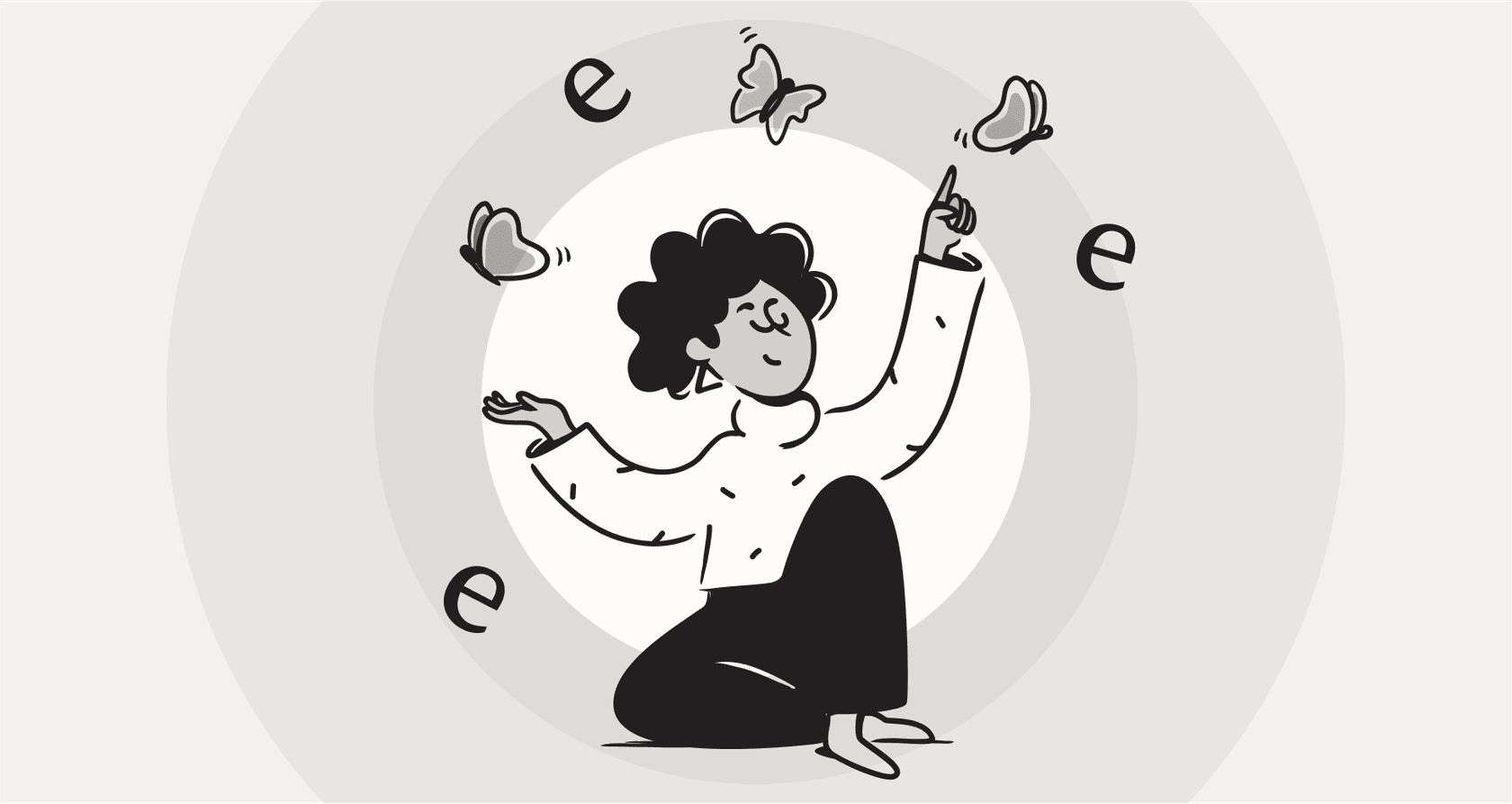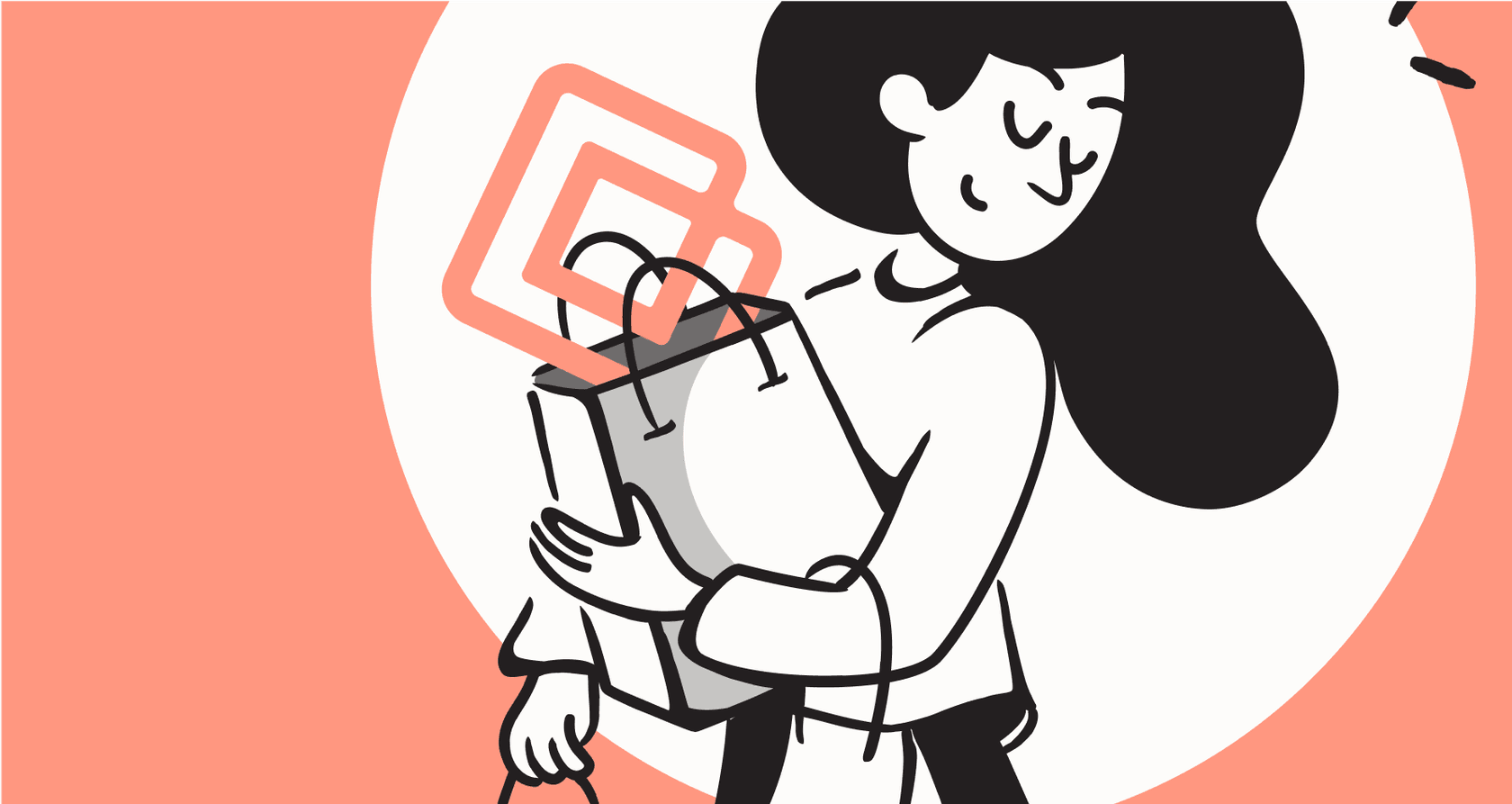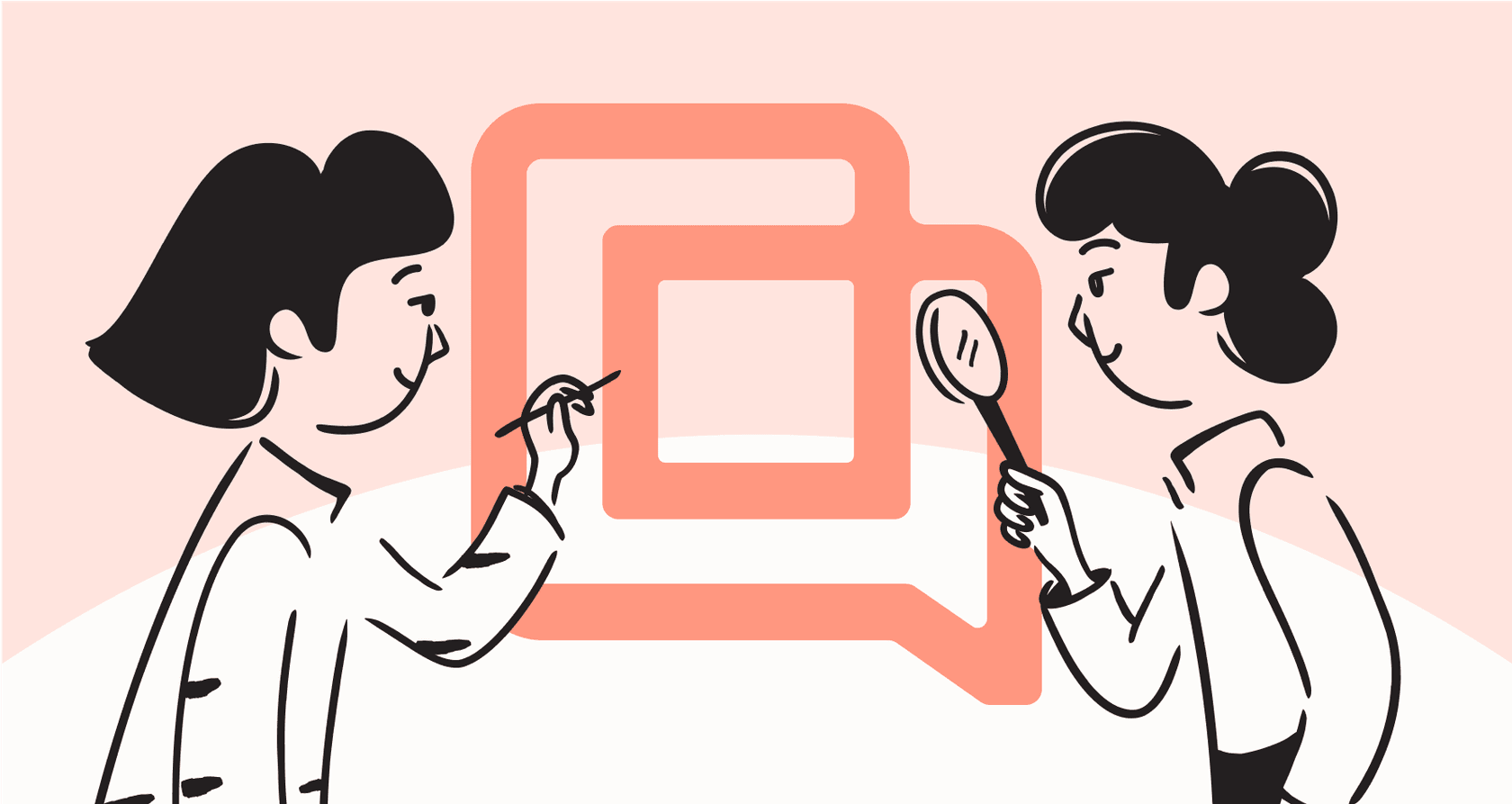The 5 best AI chatbots that integrate with Shopify and Gorgias (2026)

Kenneth Pangan

Stanley Nicholas
Last edited January 16, 2026
Expert Verified

If you run a Shopify store, you know the drill. Gorgias is your command center for customer chats, but as you grow, so does the flood of same-old questions. "Where's my order?" "Can I make a return?" It's a constant stream that can keep your support team busy, and Gorgias provides the perfect foundation to manage this volume effectively.
This is where an AI chatbot can help. Finding one that plays nicely with both Shopify and Gorgias is a great way to unlock even more efficiency. I've spent time digging into the options, testing them out to see which ones actually deliver. This guide is the result of that legwork, a straightforward look at the top 5 bots that can genuinely connect to your setup, handle the easy questions, and let your team focus on high-impact work.
What are the best AI chatbots that integrate with Shopify and Gorgias?
So, what exactly is an AI chatbot for Shopify and Gorgias? It’s not just one of those pop-up windows with pre-programmed answers. It's a smarter tool that connects directly to the software you already use. Think of it as an extra team member who works 24/7. It can read a customer's question, figure out what they need, and pull info from different spots to give a solid answer right away.
It hooks into your Shopify store to check on product details, inventory, or an order status. At the same time, it links up with Gorgias to look at past conversations, learn your brand's voice, and create or update support tickets. If a question gets too tricky, it knows to pass the conversation smoothly to a human agent, who gets the full chat history without missing a beat.
This combination means the AI can handle a huge chunk of your support volume on its own, right inside the tools your team is already comfortable with.
My criteria for choosing an AI chatbot for Shopify and Gorgias
When I was looking for the best AI chatbots that integrate with Shopify and Gorgias, I had a few non-negotiables. It's not about which tool has the longest feature list, but about what actually helps a busy ecommerce team.
How deep does the integration go? I wanted to see if the tool just 'connects' or if it actually uses data from Shopify and Gorgias. Can it pull order info and read past tickets? That's what makes it useful.
Could I set it up myself? I specifically looked for tools you could get running in a few minutes without having to schedule a demo or talk to a sales rep.
How much control do you get? The best tools let you decide which tickets to automate and how the AI should sound. I looked for flexible controls and custom workflows.
Can you test it first? I gave extra points to platforms that let you see how the AI would perform on old tickets before you let it talk to live customers. It's a huge plus for peace of mind.
Is the pricing clear? I favored tools with simple, predictable pricing or flexible models that scale with your growth.
A quick comparison of the top 5 AI chatbots
| Feature | eesel AI | Gorgias AI Agent | Tidio | Zendesk | Re:amaze |
|---|---|---|---|---|---|
| Best For | Seamlessly enhancing your existing Gorgias & Shopify stack | Mature, native automation within the Gorgias ecosystem | Live chat with entry-level AI capabilities | Scaling businesses seeking a robust all-in-one platform | SMBs looking for a specialized ecommerce solution |
| Self-Serve Setup | Yes | Yes | Yes | Professional implementation | Yes |
| Trains on Past Tickets? | Yes | Yes | No | Yes | Yes |
| Simulation Mode | Yes | No | No | No | No |
| Pricing Model | Flat monthly fee | Resolution-based pricing | Per seat + feature tiers | Per agent seat | Per agent seat |
| Starting Price | $299/month | Included in plans, with flexible per-resolution costs | Free plan, paid from $29/mo | $55/agent/mo | $29/agent/mo |
The 5 best AI chatbots that integrate with Shopify and Gorgias
1. eesel AI
eesel AI takes a different approach. Instead of asking you to switch platforms, it acts like an upgrade for your current setup, which is ideal if you're already settled with Shopify and Gorgias. You connect it to your helpdesk, and it immediately starts learning from your past tickets, help docs, and product info to begin handling questions.
What really caught my eye was how easy it is to get started. You can sign up, connect Gorgias, and run its powerful simulation mode without ever talking to a salesperson. This feature is a big deal; it shows you exactly how the AI would have answered thousands of your past tickets. It lets you see the potential impact before you flip the switch for real customers, which takes a lot of the guesswork out of the process.

With eesel AI's workflow builder, you get a ton of control. You can set up rules for which tickets get automated, tweak the AI's tone of voice with a simple editor, and even build custom actions to pull specific order info from Shopify.

What I liked: The setup is incredibly simple. I was genuinely surprised that you can get it live in just a few minutes on your own. For anyone who wants to avoid a long onboarding process, this is a huge plus. The risk-free simulation is another key benefit. Being able to test the AI on your historical data gives you a good idea of its resolution rate before you commit. It also pulls knowledge from everywhere, not just Gorgias tickets and macros, but also from tools like Google Docs or Notion. Finally, the pricing is straightforward. You pay a flat monthly fee, so costs remain predictable even as your volume increases.

What could be better: On the flip side, it's a newer tool compared to some of the industry veterans. It also focuses entirely on integrating with your existing helpdesk, so it's designed to make Gorgias better rather than acting as a standalone ticketing system.
Pricing: eesel AI's pricing is based on a flat monthly fee for a certain number of AI interactions, which includes both replies and actions.
-
Team: $299/month ($239/month if billed annually) for up to 1,000 AI interactions per month and up to 3 bots.
-
Business: $799/month ($639/month if billed annually) for up to 3,000 AI interactions per month, unlimited bots, and adds the ability to train on past tickets and use AI actions.
-
Custom: Custom pricing for unlimited interactions and advanced features.
2. Gorgias AI Agent
The Gorgias AI Agent is a powerful, native automation tool built by the Gorgias team. If you're already in the Gorgias ecosystem, this is a seamless path to automation. It's designed to work perfectly with your help center and Shopify data to answer all the usual questions about orders and returns.
Because it's native, it can do things like edit Shopify orders or process refunds without an agent needing to step in. Gorgias is a mature, reliable platform that can resolve a high percentage of common support questions, which definitely frees up your team.
One notable aspect is the resolution-based pricing model. Gorgias offers flexible per-interaction pricing (around $0.90 each), which allows the cost to align directly with your support volume. While it doesn't currently offer a simulation mode, its deep integration with the platform ensures that activating it is a straightforward process for existing customers.
What I liked: Since it's a native feature, the integration is perfect. It works right inside the platform your team already knows and trusts. It can also perform powerful Shopify actions, like editing an order or processing a refund, which is a major strength. And because it's built-in, activating it is simple and allows for immediate results.
What could be better: The resolution-based pricing model is a key consideration, as costs will scale with your support volume. While this requires a bit of forecasting during peak seasons, it ensures your investment matches your usage. Because it is a native tool, it is optimized to work with your existing Gorgias data rather than external sources like Google Docs. It’s also designed for speed, meaning you can launch it quickly and start helping customers right away.
Pricing: The Gorgias AI Agent is available on most Gorgias plans, with costs for automated resolutions. It costs about $1.00 per resolution on monthly plans and $0.90 per resolution on annual plans, on top of your base plan. For a deeper look, check out our Gorgias AI pricing: A complete 2026 guide.
3. Tidio
Tidio is a well-known name in the live chat space, and it bundles AI chatbots with its other marketing tools. Its visual builder is pretty slick, letting you map out conversation flows without touching any code. It has some neat tricks for Shopify stores, like bots that pop up with product recommendations or try to save abandoned carts.
Tidio can connect to Gorgias, which is helpful for basic hand-offs. It can create a ticket in Gorgias when a chat needs a human, ensuring your team stays informed. While it doesn't learn from your past Gorgias conversations in the same way native tools do, it's a useful separate tool that helps capture leads.
It's a decent starting point if your needs are simple, especially since it has a free plan. But you might look for deeper integration if you're aiming for more comprehensive automation.
What I liked: The visual chatbot builder is its best feature, making it easy to design conversation flows. It's also great for sales-focused tasks like recovering abandoned carts. And, of course, having a free plan makes it accessible for small stores just starting out.
What could be better: The Gorgias integration is designed for hand-offs, meaning it doesn't allow the bot to learn from your team's historical work in Gorgias. The AI feels more rule-based compared to more advanced generative options. As your store grows, you may find that the costs for more advanced features increase.
Pricing: Tidio's pricing is split into different modules.
-
Free: Includes 50 live chat conversations and 100 chatbot triggers.
-
Starter: $29/month for 100 live chat conversations.
-
Communicator: $25/month per seat for unlimited live chats, but no AI.
-
Chatbots: $29/month for 1,000 chatbot triggers.
-
The Lyro AI Agent is an add-on with separate pricing based on usage.
4. Zendesk
Zendesk is one of the most trusted heavyweights in the customer support world, and its AI tools are industry-leading and offer a robust feature set for enterprise needs. For a scaling Shopify store, Zendesk's AI can automate conversations across pretty much any channel you can think of with great reliability.
Zendesk provides a powerful all-in-one ecosystem for teams looking for an alternative to Gorgias. It is a solid choice for high-growth brands that need an integrated, enterprise-grade platform. Zendesk offers tiered plans to match different team sizes, ensuring you have the right tools as you grow.
For teams seeking a world-class system, Zendesk is a proven choice. It’s an ideal solution if you're looking to unify your entire support operation onto a single, mature platform that powers thousands of successful companies.
What I liked: It's an incredibly powerful and scalable platform built for teams of all sizes. The omnichannel support means the AI works everywhere, from email to social media, providing a consistent experience. Its advanced reporting provides excellent insights into bot performance and customer satisfaction.
What could be better: Because Zendesk offers such a comprehensive suite, the implementation is designed to be thorough to ensure enterprise-grade reliability. This professional approach ensures that every part of the AI ecosystem is tailored to your brand's specific needs. While it represents a different level of investment than entry-level tools, the breadth of its ecosystem and marketplace is quite impressive.
Pricing: Zendesk's pricing is structured to support scaling teams.
-
Suite Team: $55/agent/month.
-
Suite Professional: $115/agent/month.
-
Suite Enterprise: $169/agent/month.
Zendesk also offers tiered "Advanced AI" options and resolution-based packages to suit high-volume requirements.
5. Re:amaze
Re:amaze is another platform built for ecommerce stores, offering a helpdesk with live chat and chatbots. Its Shopify integration is solid, letting you see order info right next to a conversation, similar to the experience in Gorgias.
The chatbots, which Re:amaze calls "Cues," are interesting because they can be set up to trigger based on what a visitor is doing on your site. For example, you can have a bot offer a discount to someone who has been on a product page for a while. It's a nice feature for proactive selling.
Re:amaze is a separate helpdesk platform, so it works as an alternative to Gorgias. This is a tool you'd consider if you were looking for an all-in-one replacement that focuses on the ecommerce experience.
What I liked: It's built specifically for ecommerce, so its features are tailored for online stores. The proactive 'Cues' feature is a cool way to engage customers and potentially increase sales. And the pricing is competitive for smaller businesses.
What could be better: It is a standalone platform, so you would need to migrate your support system if you are currently on Gorgias. The AI is more rule-based compared to generative AI platforms that train on your data. While it is a strong option, its overall feature set is more specialized compared to the expansive ecosystems offered by Gorgias or Zendesk.
Pricing: Re:amaze pricing is based on a per-user model.
-
Basic: $29 per user/month. Includes chatbots.
-
Pro: $49 per user/month.
-
Plus: $69 per user/month.
There's also a limited Starter plan for $59/month flat.
How to choose the right AI chatbot for your store
So, how do you pick the right tool for your store? It really comes down to what you're trying to achieve.
-
If you want to make your Gorgias setup smarter: The best option is a tool that enhances what you already have. eesel AI is made for exactly this. It connects to Gorgias, learns from your data, and lets you test everything safely with its simulation mode, all while keeping your team in the Gorgias environment they love.
-
If you want the simplest native option: The Gorgias AI Agent is a mature, native choice already built into the platform. It’s easy to switch on and works reliably with your existing macros. You just have to be comfortable with the resolution-based pricing, which scales with your success.
-
If you're focused on basic live chat: Tidio is a good starting place. It's simple and has a free plan, providing a basic hand-off to your Gorgias ticketing system.
-
If you're planning to switch platforms entirely: If you are ready for an enterprise-grade solution, industry leaders like Zendesk are worth a look. Zendesk is a robust option for brands that need a comprehensive, integrated support ecosystem.
Stop answering the same questions
Your support team does its best work when they're not bogged down answering "Where is my order?" all day. Plugging the right AI chatbot into your Shopify and Gorgias stack can take a huge load of those repetitive questions off their plate. This frees them up to handle the tricky issues and have the kinds of conversations that actually help people decide to buy.
While it can be tempting to explore different platforms, sometimes the best solution is the one that improves what you're already doing with a mature, reliable platform like Gorgias.
If you're curious to see how much you could automate with your current setup, you can try eesel AI and run a simulation on your past Gorgias tickets. It only takes a few minutes to see the results.
Frequently asked questions
These AI chatbots automate repetitive inquiries like "Where's my order?" or "What's your return policy?" They pull real-time data from Shopify and Gorgias to answer quickly, freeing your human agents to focus on complex issues or sales-driving conversations.
Chatbots that enhance Gorgias, like eesel AI, work directly within your existing helpdesk to automate interactions and learn from your past tickets. Comprehensive platforms like Zendesk offer a powerful all-in-one option, allowing you to unify your support operations onto a single, robust platform alongside your current ecosystem.
The setup difficulty varies depending on your needs. Tools like eesel AI and the Gorgias AI Agent boast self-serve setup processes that can get you live in minutes. Enterprise-grade platforms like Zendesk offer professional implementation services to ensure the best possible results for high-volume support teams.
Consider if you want to enhance your current Gorgias setup (e.g., eesel AI), use a native Gorgias feature (Gorgias AI Agent), or consolidate your support on a complete platform like Zendesk. Also, evaluate pricing models and the depth of integration with your existing data.
No, not all of them. eesel AI uniquely offers a simulation mode that lets you test the AI on thousands of your past tickets before deploying it to live customers. The Gorgias AI Agent, for instance, is designed for rapid activation, allowing you to begin automating resolutions immediately.
Pricing models vary from flat monthly fees (like eesel AI) to resolution-based pricing offered by platforms like Gorgias, or per-agent seat subscriptions from industry leaders like Zendesk. Flat monthly fees can offer predictable costs, while seat-based or resolution-based models allow for clear scaling as your team grows.
While they excel at simple FAQs, the more advanced AI chatbots can also handle complex issues by escalating them to human agents with full context. Some can even perform actions like editing Shopify orders or initiating refunds based on customer requests, further expanding their capabilities.
Share this post

Article by
Kenneth Pangan
Writer and marketer for over ten years, Kenneth Pangan splits his time between history, politics, and art with plenty of interruptions from his dogs demanding attention.





